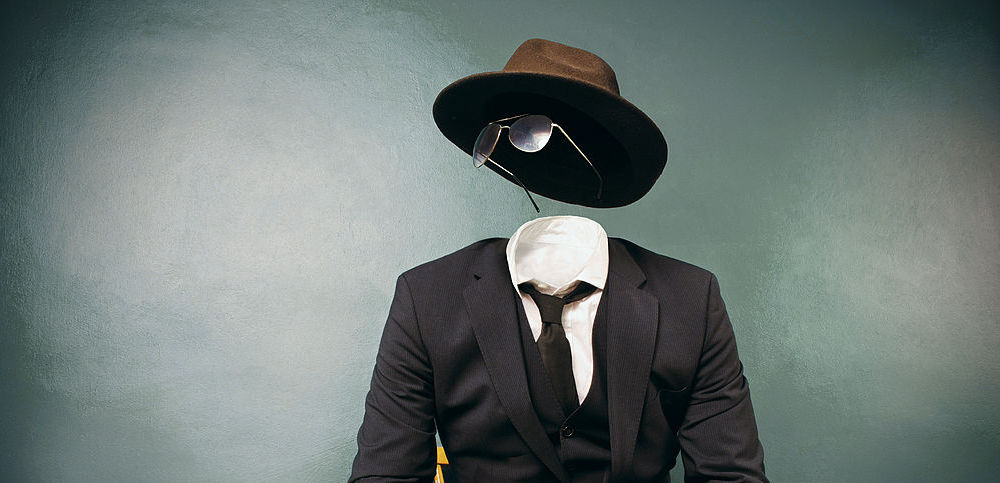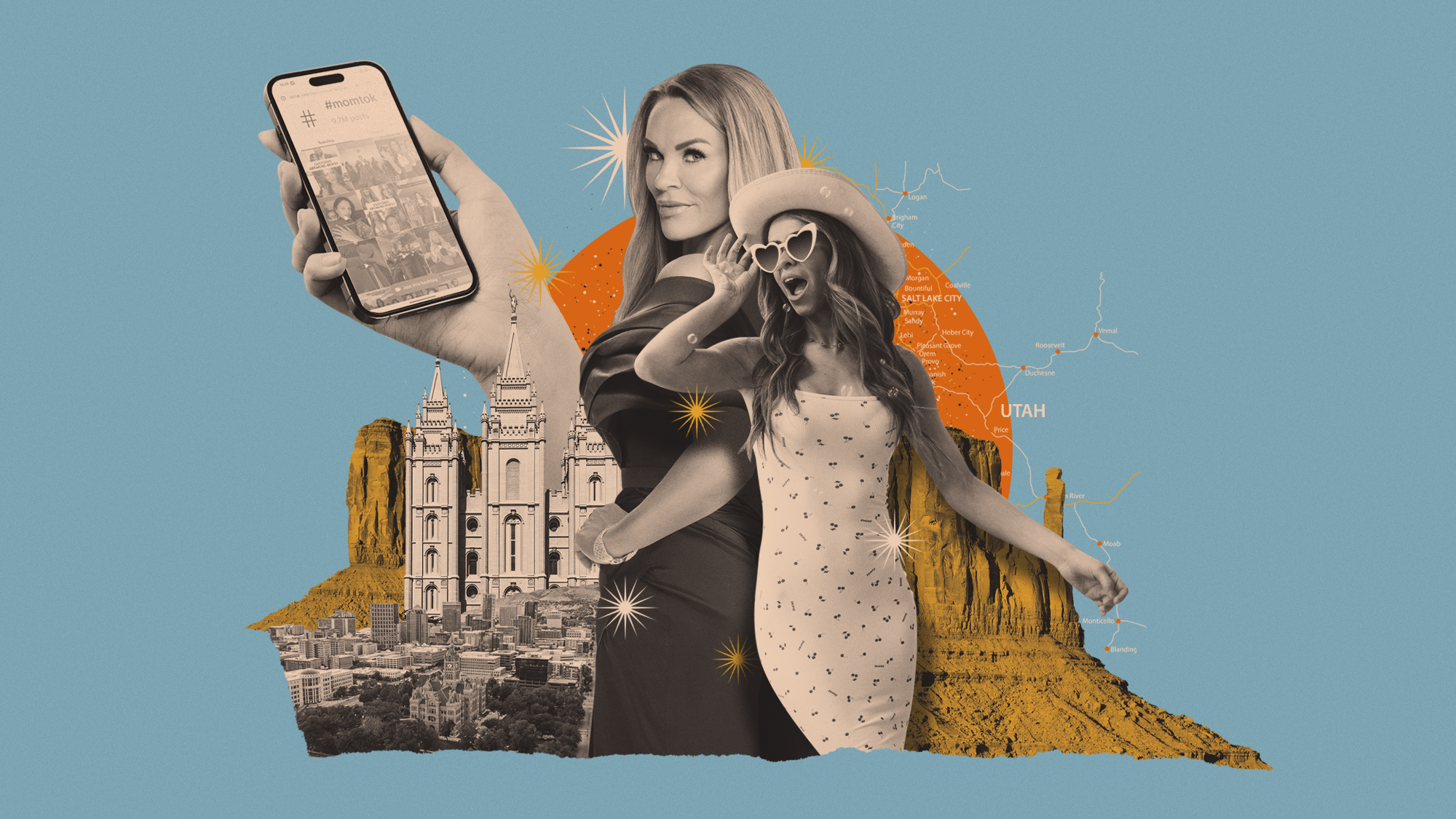What makes a man a man?
Men are in trouble. Part of it is an identity crisis.


A free daily email with the biggest news stories of the day – and the best features from TheWeek.com
You are now subscribed
Your newsletter sign-up was successful
"So tell me if you can," Marc Almond sang in 1993, "what makes a man a man?" Almond, most famous for the hit "Tainted Love" with his old band Soft Cell, did not write that challenge; Charles Aznavour did, in his 1972 single "Comme ils disent." The question it poses is much older still, and always new.
Is manhood achieved simply when someone with an X and Y chromosome reaches biological maturity? Is it a performative construct created by a dominant culture based on certain inherited stories and myths of manliness? Is it an endangered tradition? Is it inherently toxic?
The one thing most everyone seems to agree on about manhood is that it's in trouble now, if not in crisis. That affects more than just men. But to address the problem of modern manhood, we first have to understand what makes a man.
The Week
Escape your echo chamber. Get the facts behind the news, plus analysis from multiple perspectives.

Sign up for The Week's Free Newsletters
From our morning news briefing to a weekly Good News Newsletter, get the best of The Week delivered directly to your inbox.
From our morning news briefing to a weekly Good News Newsletter, get the best of The Week delivered directly to your inbox.
Why is everyone so worried about manhood?
Men seem collectively adrift. A tragic number are dying of suicide, homicide and accidental drug overdoses; they are lonely and depressed, losing socioeconomic and cultural clout, and underperforming in education. Some men are becoming dangerously violent, others are trading love for pornography and adventure for video games. Many men are barely hanging on in quiet desperation. That's bad for men, obviously, but also bad for everyone who loves, depends on, or works with them.
"It's the problem that has too many names," Carlos Lozada wrote at The New York Times. "Toxic masculinity. The feminization of America. The epidemic of fatherlessness. The crisis of boys. The end of men." There are many "competing explanations" and solutions, but as those jostle for ascendence, "men themselves just keep breaking down."
Is this a new problem?
Not exactly. "For practically as long as men have existed, they have been in crisis," Becca Rothfeld wrote at The Washington Post. "As far back as the 1660s, King Charles II warned English men that a new beverage called coffee would destroy their virility, and in the early 1900s, opponents of coeducation worried that feather beds, dancing and even reading might emasculate little boys."
"What has happened to the American male?" Arthur Schelsinger Jr. asked in a 1958 essay in Esquire, "The Crisis of American Masculinity." "For a long time, he seemed utterly confident in his manhood," but "there are multiplying signs, indeed, that something has gone badly wrong with the American male's conception of himself."
A free daily email with the biggest news stories of the day – and the best features from TheWeek.com
Today's particular flavor of male aimlessness, despair and malaise may be worse than in the 1950s or 1660s, or it may not. But it is today's men we must contend with, not the ghosts of masculinity past.
Who can today's men look to as role models?
It depends on who you ask. In the late 1970s and early 1980s there was a lively debate over whether a man should be more like the sensitive, wise-cracking Alan Alda or the stoic, silent, gun-toting John Wayne.
That debate was never settled; the archetypes just changed. Today, the side of exaggerated masculinity is being championed by figures like podcaster Joe Rogan, Canadian academic Jordan Peterson and the toxic influencer Andrew Tate. Sen. Josh Hawley (R-Mo.) promoted similar "masculine virtues America needs" in his 2023 book "Manhood."
The other side — the left, for lack of a better term — isn't really offering an alternative masculinity these days, leaving a dangerous void, Matthew Sitman and Sam Adler-Bell argued at the "Know Your Enemy" podcast.
"Influencers on the right have found an audience by recognizing and exaggerating" tropes of manhood, Christine Emba wrote at the Post. But if there were "nothing valid at the core" of these misguided models of masculinity, "they wouldn't command this sort of popularity. People need codes for how to be human. And when those aren't easily found, they'll take whatever is offered."
Is there an instruction manual for manhood?
This could be seen as a trick question — do "real" men even read instructions? — but in fact yes, there are several.
Hawley's "Manhood" holds up a number of masculine exemplars, mostly from the Bible, and suggests six roles men should emulate: husband, father, warrior, builder, priest, and king. "Of Boys and Men," a 2022 book by the scholar Richard Reeves, lays out the problems of men and offers some technocratic solutions. Peterson's "Twelve Rules for Life" purports to be an instruction book in the art of masculinity.
The type of manliness prescribed in Harvard professor Harvey Mansfield's 2006 "Manliness" leans toward chivalry, while the poet Robert Bly's 1990 "Iron John" is a classic text of the "mythopoetic" men's movement, which seeks self-actualizing answers in primal Jungian templates drawn from myth and legend. A lot of men point to Rudyard Kipling's poem "If—" as a sort of cheat sheet to achieving manhood.
"There are plenty of meaningful disagreements among these writers," Lozada noted in the Times, but all of them "agree that manhood does not spring fully formed from a mother's womb or commence with a recognizable biological transformation, such as puberty, that turns boys into men. Instead, it must be constantly molded and reaffirmed."
But "if you need a YouTube video to help you be a man," Phil Christman countered in The Hedgehog Review, "then in some essential sense simply being one is already off the table."
So, what makes a man a man?
Well, "let's do a little experiment," Frank Festa said at NPR News: "Close your eyes and think of the manliest guy you can." He's probably strong, brave and "doesn't succumb to his emotions." Those attributes are the key ingredients in the "man box," a concept first popularized in the 1980s by the Oakland Men's Project.
A survey of cultures by anthropologist David Gilmore, published in 1991, found that almost all societies have a concept of "real" or "true" manhood — achieved by providing for their family, protecting their community and successfully procreating — that has to be earned, and taught by other men. Today we might add that exemplary men are leaders, broad-shouldered upholders of virtue, responsibility takers, and emotional bedrocks.
Richard Reeves told the Post he tries to raise his three boys "to have the confidence to ask a girl out, if that's their inclination; the grace to accept no for an answer; and the responsibility to make sure that, either way, she gets home safely." Caitlin Flanagan, writing at The Atlantic, proposed "heroic masculinity" as the antidote to "toxic masculinity."
"Masculinity is an abstract rage to protect," Christman concluded. Not actually protect, or even do "the actual useful things a man (or anyone else) may do for other people." No, all the "pain seeking and stoicism, this showboating asceticism and loud silence" of being a man is tied to an exhausting and often counterproductive compulsion to anticipate absurd dangers and "undertake defensive projects that have no connection to the actual day-to-day flourishing of the people one loves."
The American Psychological Association suggested in 2019 that much of "traditional masculinity" is, "on the whole, harmful" and literally detrimental to a man's health. Men should break free from "rigid" gender norms and embrace "pro-social traits" like courage and leadership. After all, "about a third of the traits that people consider to be positive aspects of masculinity, such as sacrificing for others and having strong morals, are actually expected more from women than men."
It's hard, maybe even foolhardy, to assign defining characteristics to men, united mainly by chromosomes and sex organs — and then explain why those characteristics don't also define women. But boys and men (and girls and women) need some qualities to emulate, embrace or reject. The male character in Aznavour's song, after all, is a drag performer.
For all the fluid ambiguity of gender, many of the traits attributed to manhood are "scaffolded by biology — all are associated with testosterone, the male sex hormone," Emba wrote in the Post. "I'm convinced that men are in a crisis. And I strongly suspect that ending it will require a positive vision of what masculinity entails that is particular — that is, neither neutral nor interchangeable with femininity. Still, I find myself reluctant to fully articulate one. There's a reason a lot of the writing on the crisis in masculinity ends at the diagnosis stage."
Peter has worked as a news and culture writer and editor at The Week since the site's launch in 2008. He covers politics, world affairs, religion and cultural currents. His journalism career began as a copy editor at a financial newswire and has included editorial positions at The New York Times Magazine, Facts on File, and Oregon State University.
-
 Health insurance: Premiums soar as ACA subsidies end
Health insurance: Premiums soar as ACA subsidies endFeature 1.4 million people have dropped coverage
-
 Anthropic: AI triggers the ‘SaaSpocalypse’
Anthropic: AI triggers the ‘SaaSpocalypse’Feature A grim reaper for software services?
-
 NIH director Bhattacharya tapped as acting CDC head
NIH director Bhattacharya tapped as acting CDC headSpeed Read Jay Bhattacharya, a critic of the CDC’s Covid-19 response, will now lead the Centers for Disease Control and Prevention
-
 The 8 best superhero movies of all time
The 8 best superhero movies of all timethe week recommends A genre that now dominates studio filmmaking once struggled to get anyone to take it seriously
-
 Josh D’Amaro: the theme park guru taking over Disney
Josh D’Amaro: the theme park guru taking over DisneyIn the Spotlight D’Amaro has worked for the Mouse House for 27 years
-
 The best fan fiction that went mainstream
The best fan fiction that went mainstreamThe Week Recommends Fan fiction websites are a treasure trove of future darlings of publishing
-
 How Utah became a media focal point
How Utah became a media focal pointIn Depth In producing the stars of #MomTok and reality TV alike, Utah has emerged as a media powerhouse
-
 Golden Globes affirm ‘One Battle,’ boost ‘Hamnet’
Golden Globes affirm ‘One Battle,’ boost ‘Hamnet’Speed Read Comedian Nikki Glaser hosted the ceremony
-
 ‘One Battle After Another’ wins Critics Choice honors
‘One Battle After Another’ wins Critics Choice honorsSpeed Read Paul Thomas Anderson’s latest film, which stars Leonardo DiCaprio, won best picture at the 31st Critics Choice Awards
-
 The best alcohol-free alternatives for Dry January
The best alcohol-free alternatives for Dry JanuaryThe Week Recommends Whether emerging from a boozy Christmas, or seeking a change in 2026, here are some of the best non-alcoholic beers, wines and spirits to enjoy
-
 13 Gen Z workplace terms and phrases
13 Gen Z workplace terms and phrasesin depth From ‘quiet firing’ to ‘resenteeism,’ there are clues about why employers and employees in America are having such a sad time
